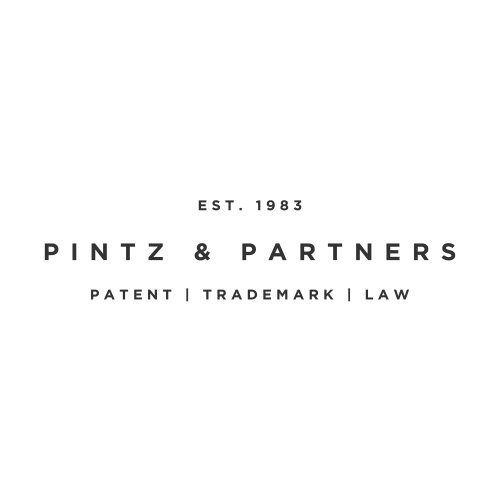Best Trademark Lawyers in Hungary
Share your needs with us, get contacted by law firms.
Free. Takes 2 min.
Or refine your search by selecting a city:
List of the best lawyers in Hungary
About Trademark Law in Hungary
Trademark law in Hungary is primarily governed by Act XI of 1997 on the Protection of Trademarks and Geographical Indications. This legal framework aligns with European Union directives and provides protection for distinctive signs, such as words, logos, and combination marks, which are used to identify and differentiate goods or services of one entity from those of another. The Hungarian Intellectual Property Office (HIPO) is the central authority responsible for trademark registration and enforcement within Hungary.
Why You May Need a Lawyer
Navigating trademark laws and procedures can be complex, and there are several situations where consulting a legal professional may be beneficial:
- Registering a Trademark: A lawyer can help ensure that your trademark meets all legal requirements and improves the likelihood of successful registration.
- Trademark Infringement: If your trademark has been infringed upon or you're accused of infringing another's trademark, legal assistance is crucial.
- Trademark Portfolio Management: For businesses with multiple trademarks, a lawyer can manage renewals, monitor for potential infringements, and maintain the overall portfolio.
- International Trademark Issues: Expanding your trademark protection to other countries, including EU registration, requires specialized legal guidance.
- Commercial and Licensing Agreements: Lawyers are essential when drafting and negotiating agreements involving trademark licenses or sales.
Local Laws Overview
Some key aspects of local laws that are relevant to trademark protection in Hungary include:
- Registration Process: Trademarks are registered through HIPO by submitting a detailed application, and the process can take several months.
- Validity Period: Trademarks are valid for ten years from the registration date and can be renewed indefinitely.
- Absolute and Relative Grounds for Refusal: A trademark can be refused registration due to lack of distinctiveness or conflict with existing registered marks.
- Enforcement: Trademark holders can seek remedies for infringement through civil litigation or administrative proceedings.
- International Registration: Hungary is a member of the Madrid Protocol, enabling Hungarian trademarks to be extended internationally with a simpler process.
Frequently Asked Questions
What qualifies as a trademark in Hungary?
A trademark in Hungary can be any sign, including words, marketing slogans, letters, numerals, designs, shapes, colors, sounds, or any combination thereof, capable of distinguishing goods or services of one enterprise from those of other enterprises.
How long does it take to register a trademark in Hungary?
The trademark registration process typically takes between nine and twelve months, assuming there are no objections or oppositions raised during the examination process.
Can I trademark a product name and logo at the same time?
Yes, you can trademark both a product name and logo simultaneously, provided each element meets the distinctiveness and legality requirements set by HIPO.
What should I do if someone is using my registered trademark?
If someone uses your trademark without permission, you should immediately consult with a trademark attorney to explore options, such as sending a cease-and-desist letter or pursuing legal action.
What is the cost of trademark registration in Hungary?
The basic official fee for one trademark class application is approximately 74,000 HUF. Additional fees apply if more classes are added or for other services like expedited examination.
Can foreign entities register trademarks in Hungary?
Yes, foreign entities can register trademarks in Hungary, but it is often advisable to appoint a local representative or attorney to manage the application process.
Is it necessary to conduct a trademark search before filing?
While not legally required, conducting a trademark search before filing is highly recommended to identify potential conflicts with existing marks and to assess the likelihood of successful registration.
How often do I need to renew my trademark registration?
Trademark registrations in Hungary are valid for ten years and can be renewed indefinitely for subsequent ten-year periods upon payment of a renewal fee.
Can I sell or license my trademark?
Yes, trademarks in Hungary can be sold or licensed, wholly or partially. It is crucial to formalize such transactions with appropriate legal documentation.
How can I oppose a trademark application filed by another party?
To oppose a trademark application, you must file a notice of opposition with HIPO within three months from the publication date of the trademark application in the official gazette.
Additional Resources
For further assistance and information on trademarks in Hungary, consider the following resources:
- Hungarian Intellectual Property Office (HIPO) - The official body for intellectual property services and registration.
- EUIPO (European Union Intellectual Property Office) - For issues related to EU trademarks.
- World Intellectual Property Organization (WIPO) - Provides resources for international registrations and procedural guidance.
- Hungarian Bar Association - Lists licensed attorneys specializing in intellectual property and trademark law.
Next Steps
If you need legal assistance with trademarks in Hungary, consider the following steps:
- Conduct an initial trademark availability search to ensure there are no existing conflicts.
- Contact a licensed trademark attorney for expert advice and to assist with the application process.
- Gather all necessary documentation, such as your trademark design and description of goods/services.
- File your trademark application with HIPO or seek assistance from your attorney for international trademarks.
- Monitor the status of your application and respond promptly to any HIPO queries or objections.
Lawzana helps you find the best lawyers and law firms in Hungary through a curated and pre-screened list of qualified legal professionals. Our platform offers rankings and detailed profiles of attorneys and law firms, allowing you to compare based on practice areas, including Trademark, experience, and client feedback.
Each profile includes a description of the firm's areas of practice, client reviews, team members and partners, year of establishment, spoken languages, office locations, contact information, social media presence, and any published articles or resources. Most firms on our platform speak English and are experienced in both local and international legal matters.
Get a quote from top-rated law firms in Hungary — quickly, securely, and without unnecessary hassle.
Disclaimer:
The information provided on this page is for general informational purposes only and does not constitute legal advice. While we strive to ensure the accuracy and relevance of the content, legal information may change over time, and interpretations of the law can vary. You should always consult with a qualified legal professional for advice specific to your situation.
We disclaim all liability for actions taken or not taken based on the content of this page. If you believe any information is incorrect or outdated, please contact us, and we will review and update it where appropriate.
Browse trademark law firms by city in Hungary
Refine your search by selecting a city.











